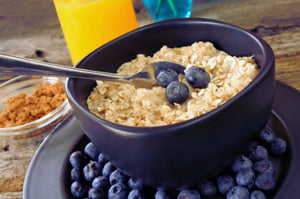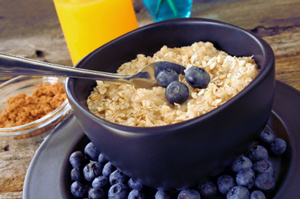Tips for Water Polo Nutrition
January 22, 2024

 Since a typical game of water polo involves a couple miles of swimming, underwater wrestling, ball throwing, and treading lots of water, maintaining proper energy levels is important. Knowing what and when to eat is a key factor when it comes to reaching your full potential in the water. This guide explains the nutrition basics of water polo.
Since a typical game of water polo involves a couple miles of swimming, underwater wrestling, ball throwing, and treading lots of water, maintaining proper energy levels is important. Knowing what and when to eat is a key factor when it comes to reaching your full potential in the water. This guide explains the nutrition basics of water polo.
If you plan on dramatically changing your eating and/or exercise habits, consider visiting a nutritionist. They'll be able to give you specialized advice, develop meal plans, and help you make sure that you're getting the right amount of calories and nutrients.
Pre-practice
It's important to put fuel in your body before water polo practice. Eat either a light meal or a snack one to two hours before getting in the water. Eating properly before exercising gives your body time to digest the food and keeps you from feeling too full when you start. Pick something that is easy on your stomach, but still substantial. Look for snacks between 200 and 400 calories. Ideally, your snack will have around a 40-30-30 ratio of carbohydrates to protein to fat.
Carbohydrates get broken down into glucose (what your body uses for energy), while protein helps you maintain stamina and build muscle. The fat slows down the whole digestion process, giving your body a steady supply of glucose and protein instead of one big spike right after you eat. Balancing these various elements helps you control your energy levels, avoiding potential dips and spikes.
During Practice
The important things to manage during practice are your hydration and blood sugar levels. Because most practices and all games are in the water (and often full sunlight as well), lots of aquatic athletes don't realize how much they sweat. Dehydration negatively affects your performance, recovery time, and even appearance. Stay hydrated by keeping a water bottle on the side of the pool and taking frequent sips. It's also important to drink plenty of fluids away from the pool.
Blood sugar levels change as you expend energy and your glucose levels drop. Sometimes they can drop too low, leading to a dramatic drop in energy called "bonking." If your energy levels regularly drop after a certain amount of time in the water, consider putting carbohydrates and some electrolytes in your drink to maintain blood sugar levels. You can also keep an easy-to-eat energy bar or gel with your water bottle for a mid-practice boost.
Lots of brands add unhealthy amounts of sweetener — both natural and artificial — to their sports drinks. This excess of carbohydrates results in a blood sugar spike… and then crash. Learn how to read the nutrition labels of sports drinks or supplements, and buy ones that are low in carbs and that also include small amounts of sodium and sometimes protein.
Post-practice Recovery
Eating shortly after a workout does a few things for your body. Not only does it give you a boost of energy that helps you continue with your day, but it also aids your body in restoring and rebuilding the muscle tissue that you just spent all of practice breaking down.
Eat a "recovery" meal or snack within an hour after practice. This is the window in which your body will most efficiently replenish its energy stores, turning that food into muscle rather than fat. Try to eat a small, 100-200 calorie snack with a three-to-one ratio of carbohydrates to protein. Also remember that while food is an important factor, there are other things you can do to further help your recovery process.
Games
The same rules for eating and drinking before, after, and during water polo practice apply to games and tournaments. It's important to follow the same guidelines, tempting as it may be to stray from them. You may not feel as hungry or thirsty before games, and the stress and excitement of competition can make it easy to forget to eat or drink properly. Lastly, don't depend on snack bars or vending machines for your game-day nutrition, as they rarely have the healthiest choices. Always try to keep a few healthy snacks and something to drink with you.
Food Suggestions
Not everyone processes the same foods in the same way. As a general rule, eating mostly whole, fresh foods like whole grains, fruits, vegetables, and dairy products are the safest and healthiest choices. Your own food choices and dietary requirements will help you craft a personal menu of foods that are ideal for you. Use the suggestions below as a starting-off point, and mix and match them for combinations that work best for you.
Carbohydrates
- Fruits such as bananas, apples, pears, berries, grapes
- Whole-grain breads or crackers
- Oatmeal
Fats & Proteins
- Nuts and nut butters
- Beans or legumes
- Lean meats such as chicken or turkey
- Eggs
- Dairy products such as yogurt, cottage cheese, milk
- Fish
Use Nutrition as a Tool
No matter how hard you work out in the pool, if you don't have the right fuel in your body your performance will suffer. Do your best to stick to whole, fresh foods like fruits, vegetables, wholegrain carbohydrates, and natural proteins. Energy bars and drinks are fine, but you will probably find that you feel better if your diet is made up of mostly natural foods. Staying hydrated, maintaining blood sugar levels, and keeping your energy high will make a huge difference in your performance in and out of the water.



